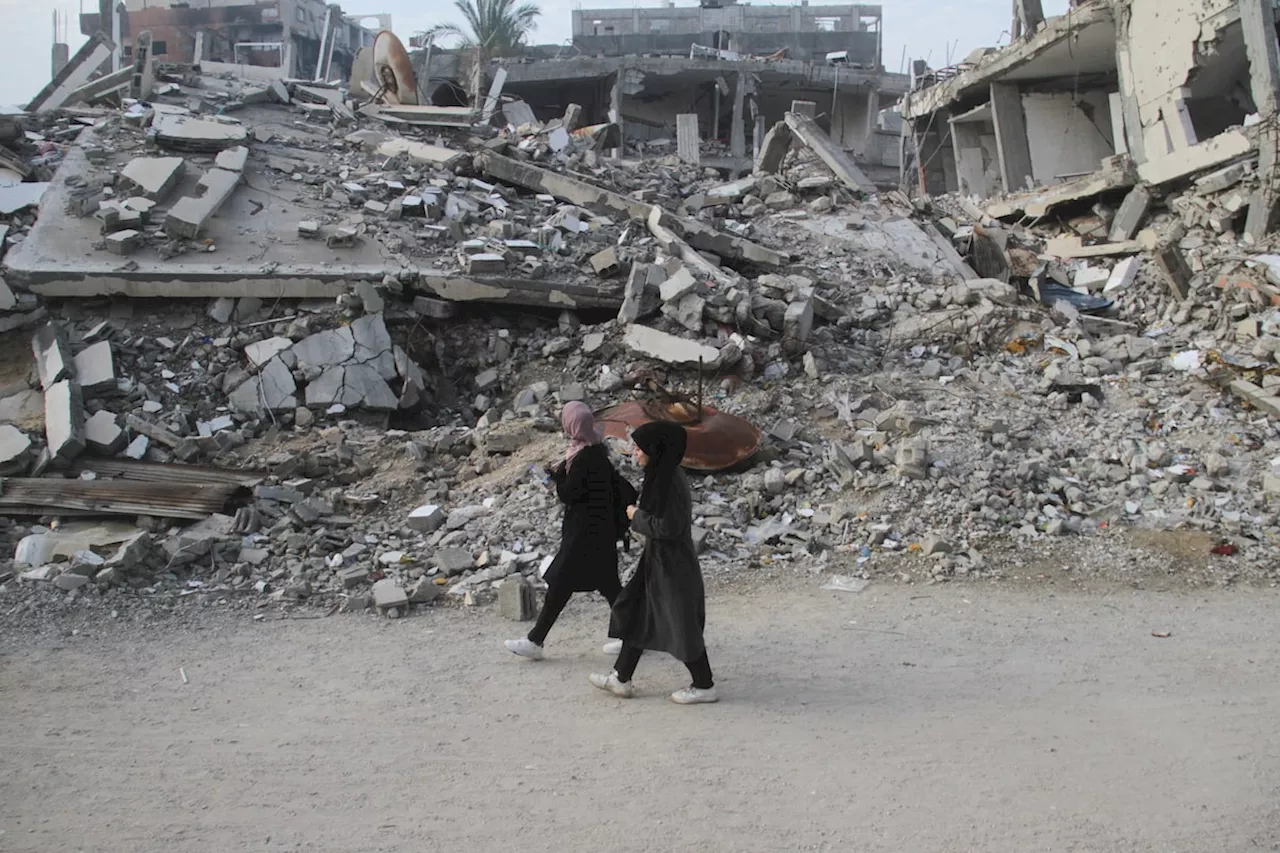The Israel-Hamas war has left Gaza in ruins, with widespread destruction and a dire humanitarian situation. While a ceasefire agreement offers hope for a return to normalcy, the road to recovery is fraught with obstacles. Millions of tons of rubble need to be cleared, critical infrastructure must be rebuilt, and the long-standing blockade imposed by Israel and Egypt must be addressed. The future of Gaza's governance and its ability to rebuild remain uncertain.
Palestinians in the Gaza Strip are eagerly anticipating the prospect of leaving miserable tent camps and returning to their homes if a long-awaited ceasefire agreement successfully halts the Israel-Hamas war. However, many face the stark reality of finding nothing left to return to and encountering insurmountable obstacles to rebuilding their lives.
Israeli bombardment and ground operations have transformed entire neighborhoods in several cities into desolate wastelands, leaving behind blackened shells of buildings and mountains of debris stretching in all directions. Major roads have been obliterated, and critical water and electricity infrastructure lies in ruins. Most hospitals are no longer functional. While the ceasefire agreement calls for a phased approach and the release of hostages held by Hamas-led militants, it remains unclear who will govern Gaza after the conflict concludes or whether Israel and Egypt will lift the ongoing blockade limiting the movement of people and goods. This blockade, imposed when Hamas seized power in 2007, has further compounded the challenges faced by the Gazan population. The full extent of the devastation will only be unveiled once the fighting ceases and inspectors gain unrestricted access to the territory. The most severely damaged region of Gaza, located in the north, has been effectively sealed off and largely depopulated by Israeli forces. Utilizing satellite data, the United Nations estimated last month that a staggering 69 percent of structures in Gaza have been damaged or destroyed, encompassing over 245,000 homes. The World Bank projected an estimated $18.5 billion in damage – nearly equivalent to the combined economic output of the West Bank and Gaza in 2022 – resulting solely from the first four months of the war. Israel attributes the destruction to Hamas, which initiated the war with its October 7, 2023, attack into Israel, claiming the lives of approximately 1,200 individuals, mostly civilians, and abducting another 250. Israel's retaliatory offensive has resulted in the deaths of over 46,000 Palestinians, with more than half being women and children, according to Gaza's Health Ministry. The ministry does not specify the number of fatalities that were combatants. Israel asserts that it has eliminated over 17,000 militants, but has not provided any supporting evidence. The military has released photographs and video footage demonstrating that Hamas constructed tunnels and rocket launchers within residential areas and frequently operated in and around homes, schools, and mosques. Before any rebuilding can commence, the overwhelming task of clearing the rubble must be addressed. The UN estimates that the war has left Gaza littered with over 50 million tons of rubble – roughly 12 times the volume of the Great Pyramid of Giza. With over 100 trucks operating continuously, it would take over 15 years to remove the debris, and there is a scarcity of open space in the narrow coastal territory inhabited by approximately 2.3 million Palestinians. Complicating the debris removal process is the presence of vast quantities of unexploded ordnance and other hazardous materials, as well as human remains. Gaza's Health Ministry reports that thousands of individuals killed in air strikes remain buried beneath the rubble. The clearance of rubble and the eventual rebuilding of homes will necessitate billions of dollars and the capability to transport construction materials and heavy equipment into the territory – both of which are not guaranteed. The ceasefire agreement envisions a three- to five-year reconstruction project to commence in its final phase, after all the remaining 100 hostages have been released and Israeli troops have withdrawn from the territory. However, reaching that point hinges on reaching an agreement on the second and most challenging phase of the deal, which remains to be negotiated. Even then, the ability to rebuild will depend on the ongoing blockade, which critics have long condemned as a form of collective punishment. Israel maintains that the blockade is essential to prevent Hamas from reconstructing its military capabilities, citing the fact that cement and metal pipes can also be used for tunnels and rockets. Israel might be more inclined to lift the blockade if Hamas were no longer in power, but there are no plans for an alternative government. The United States and a significant portion of the international community advocate for a revitalized Palestinian Authority to govern the West Bank and Gaza with the support of Arab countries in preparation for eventual statehood. However, this proposal is unacceptable to Israel's government, which opposes a Palestinian state and has ruled out any role for the Western-backed authority in Gaza. International donors are unlikely to invest in an ungoverned territory that has endured five wars in less than two decades, which means the sprawling tent camps along the coast could become a permanent fixture in the lives of Gazans.
Israel-Hamas War Gaza Reconstruction Blockade Humanitarian Crisis
Canada Latest News, Canada Headlines
Similar News:You can also read news stories similar to this one that we have collected from other news sources.
 Israel-Gaza Ceasesfire Deal Faces Uncertainty as Netanyahu Raises ConcernsWhile Palestinians and international leaders celebrate the announced ceasefire deal between Israel and Hamas, Israeli Prime Minister Netanyahu expresses doubts about the agreement, citing Hamas' alleged backtracking on concessions. The deal, brokered by Egypt, Qatar, and the U.S., aims to release hostages, pause fighting, and ultimately end the 15-month conflict. However, Netanyahu's stance raises questions about the deal's viability, as his coalition partners threaten to withdraw their support if too many concessions are made.
Israel-Gaza Ceasesfire Deal Faces Uncertainty as Netanyahu Raises ConcernsWhile Palestinians and international leaders celebrate the announced ceasefire deal between Israel and Hamas, Israeli Prime Minister Netanyahu expresses doubts about the agreement, citing Hamas' alleged backtracking on concessions. The deal, brokered by Egypt, Qatar, and the U.S., aims to release hostages, pause fighting, and ultimately end the 15-month conflict. However, Netanyahu's stance raises questions about the deal's viability, as his coalition partners threaten to withdraw their support if too many concessions are made.
Read more »
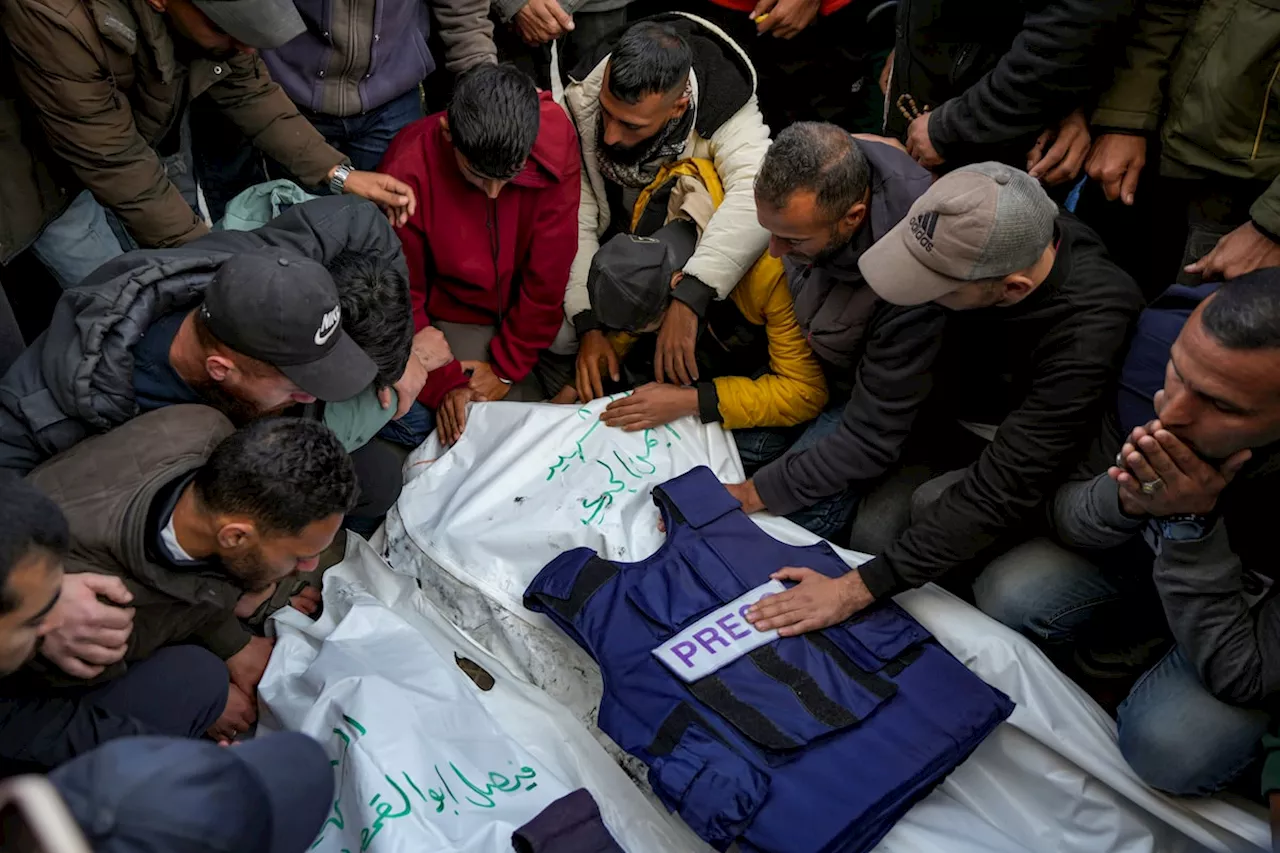 Israeli strike kills five journalists, Gaza medics say, while Israel claims it hit militantsJournalists' union says strike killed journalists from the Al-Quds Today channel who were in a broadcast vehicle in front of a hospital in central Gaza
Israeli strike kills five journalists, Gaza medics say, while Israel claims it hit militantsJournalists' union says strike killed journalists from the Al-Quds Today channel who were in a broadcast vehicle in front of a hospital in central Gaza
Read more »
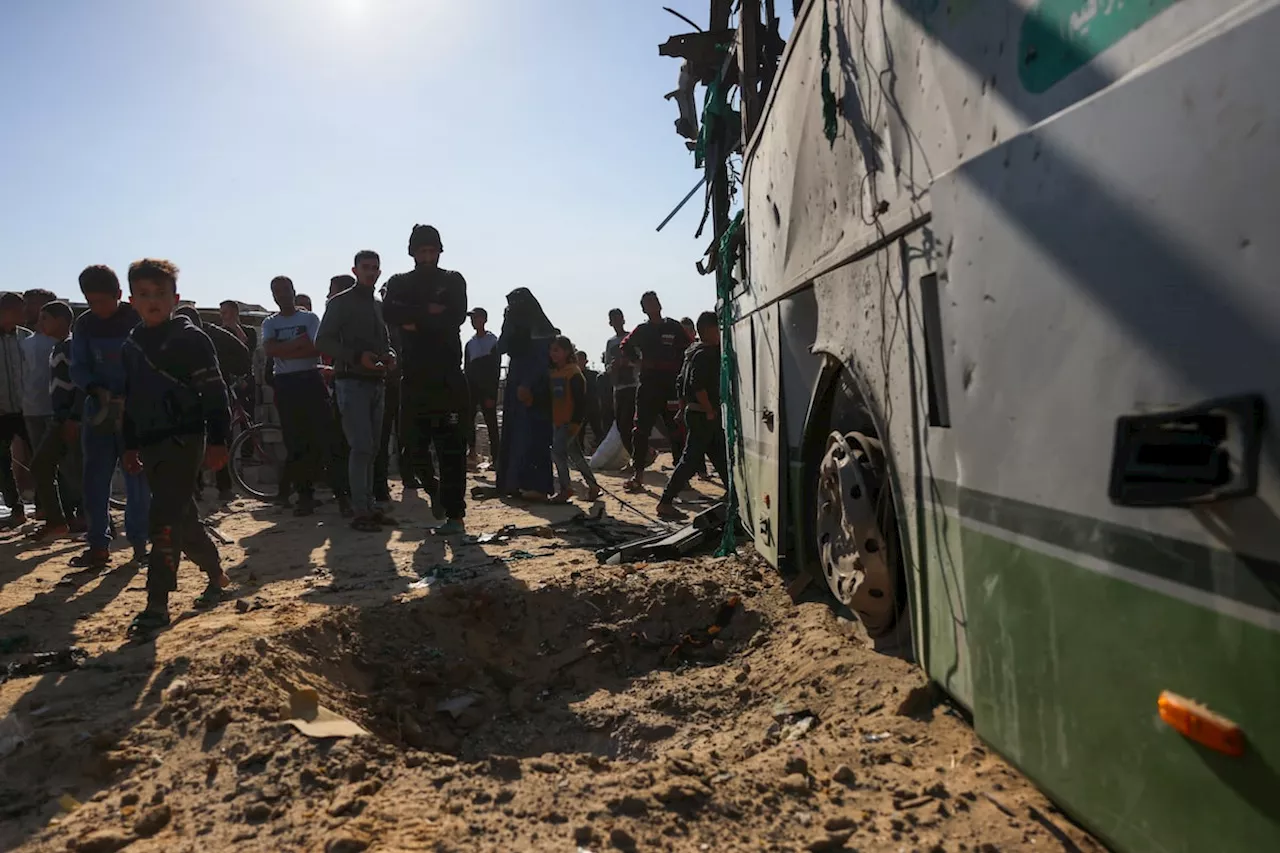 Some gaps between Israel and Hamas over possible Gaza ceasefire have narrowed, officials sayThe identity of some of the Palestinian prisoners to be released by Israel in return for hostages had yet to be agreed, along with the precise deployment of Israeli troops in Gaza, an official says
Some gaps between Israel and Hamas over possible Gaza ceasefire have narrowed, officials sayThe identity of some of the Palestinian prisoners to be released by Israel in return for hostages had yet to be agreed, along with the precise deployment of Israeli troops in Gaza, an official says
Read more »
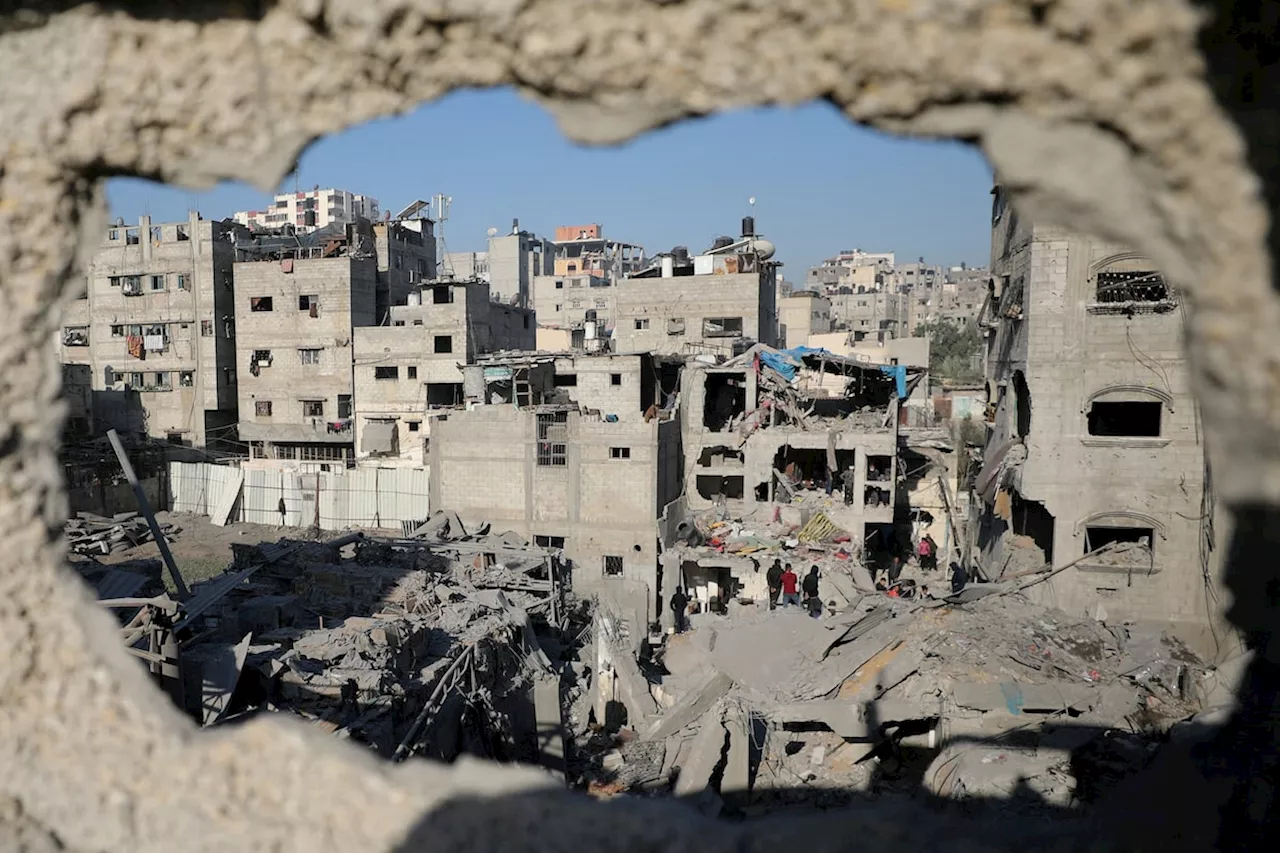 US, Arab Mediators Work to End Israel-Hamas Clashes as Gaza Deaths RiseUS and Arab mediators are intensifying efforts to broker a ceasefire between Israel and Hamas, while the death toll in Gaza continues to climb due to Israeli airstrikes. The talks aim to include a hostage release and the freeing of Palestinian prisoners held by Israel.
US, Arab Mediators Work to End Israel-Hamas Clashes as Gaza Deaths RiseUS and Arab mediators are intensifying efforts to broker a ceasefire between Israel and Hamas, while the death toll in Gaza continues to climb due to Israeli airstrikes. The talks aim to include a hostage release and the freeing of Palestinian prisoners held by Israel.
Read more »
 Human Rights Watch Accuses Israel of Genocide in GazaHuman Rights Watch accuses Israel of causing thousands of Palestinian deaths through systematic denial of water and electricity in Gaza, calling it genocide. Israel denies the allegations, stating its actions target Hamas militants.
Human Rights Watch Accuses Israel of Genocide in GazaHuman Rights Watch accuses Israel of causing thousands of Palestinian deaths through systematic denial of water and electricity in Gaza, calling it genocide. Israel denies the allegations, stating its actions target Hamas militants.
Read more »
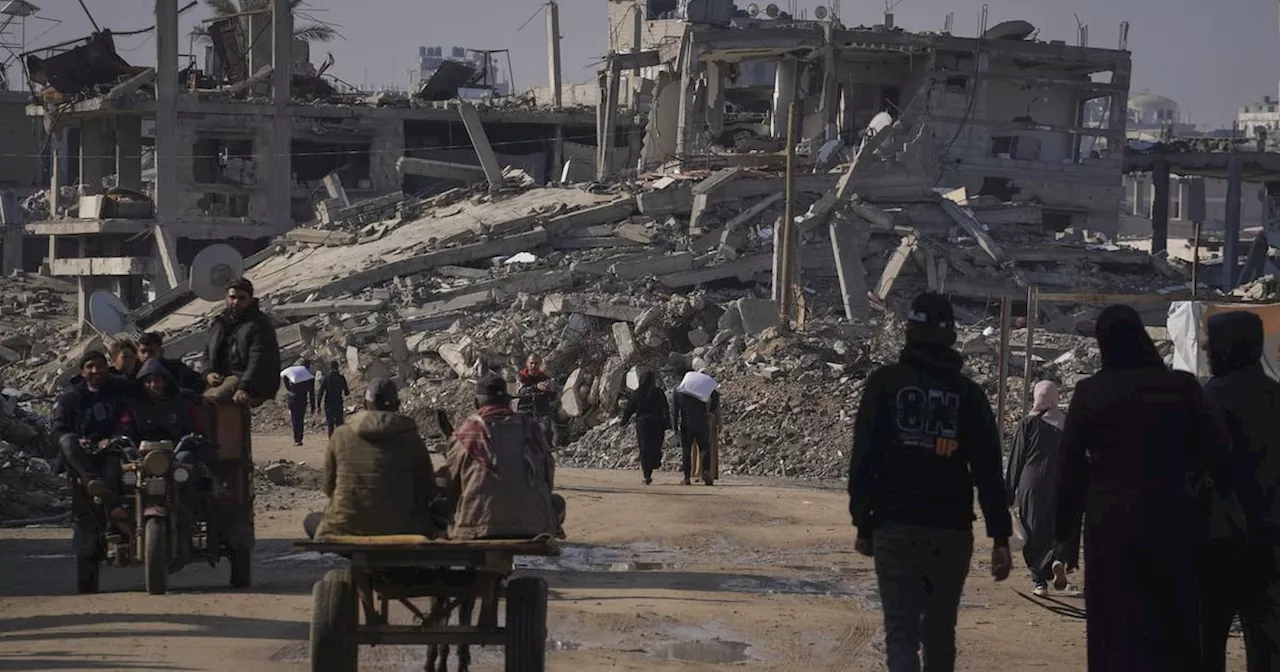 Israel-Hamas Near Ceasefire Deal to End Gaza War, But Hurdles RemainNegotiations between Israel and Hamas are progressing towards a ceasefire agreement that could end the 14-month conflict in Gaza. The deal, which would involve a phased withdrawal of hostilities, prisoner exchanges, and increased aid to Gaza, faces key challenges, particularly regarding the specifics of hostage releases and Israeli troop withdrawal.
Israel-Hamas Near Ceasefire Deal to End Gaza War, But Hurdles RemainNegotiations between Israel and Hamas are progressing towards a ceasefire agreement that could end the 14-month conflict in Gaza. The deal, which would involve a phased withdrawal of hostilities, prisoner exchanges, and increased aid to Gaza, faces key challenges, particularly regarding the specifics of hostage releases and Israeli troop withdrawal.
Read more »
